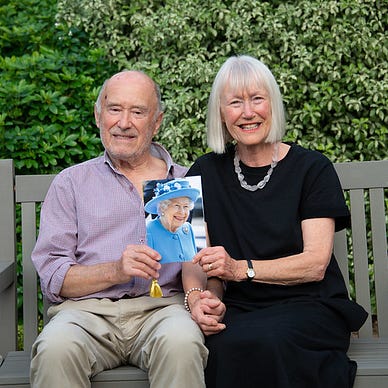Marriage — What World Scripture Says
Articles on the wisdom found in the collected works of divinely inspired literature from our world’s humanity.
“He who loves his wife loves himself.” — Ephesians 5:25–28, New Testament, The Christian Bible.
“They are clothing for you and you are clothing for them.” — Quran 2:187
Introduction
Articles on the wisdom found in the collected works of divinely inspired literature from our world’s humanity. See more at the link below …


Christianity
Bible (New Testament)
Ephesians 5:25–28: “Husbands, love your wives, just as Christ loved the church and gave himself up for her to make her holy, cleansing her by the washing with water through the word, and to present her to himself as a radiant church, without stain or wrinkle or any other blemish, but holy and blameless. In this same way, husbands ought to love their wives as their own bodies. He who loves his wife loves himself.”
Colossians 3:18–19: “Wives, submit yourselves to your husbands, as is fitting in the Lord. Husbands, love your wives and do not be harsh with them.”
1 Corinthians 7:3–4: “The husband should fulfill his marital duty to his wife, and likewise the wife to her husband. The wife does not have authority over her own body but yields it to her husband. In the same way, the husband does not have authority over his own body but yields it to his wife.”
Islam
Quran 30:21: “And of His signs is that He created for you from yourselves mates that you may find tranquillity in them; and He placed between you affection and mercy. Indeed in that are signs for a people who give thought.”
Quran 4:19: “O you who have believed, it is not lawful for you to inherit women by compulsion. And do not make difficulties for them in order to take [back] part of what you gave them unless they commit a clear immorality. And live with them in kindness. For if you dislike them — perhaps you dislike a thing and Allah makes therein much good.”
Quran 2:187: “They are clothing for you and you are clothing for them.”
Judaism
Genesis 2:24: “That is why a man leaves his father and mother and is united to his wife, and they become one flesh.”
Proverbs 18:22: “He who finds a wife finds what is good and receives favour from the Lord.”
Ecclesiastes 9:9: “Enjoy life with your wife, whom you love, all the days of this meaningless life that God has given you under the sun — all your meaningless days. For this is your lot in life and in your toilsome labour under the sun.”
Hinduism
Rigveda 10.85.47: “Be an empress over your husband. Control his speech and his heart. Be an empress over his home. May you be a queen to his father, a queen to his mother, a queen to his brother, and a queen to his sister.”
Manusmriti 5.154: “Where women are honoured, divinity blossoms there, and where they are dishonoured, all actions remain unfruitful.”
Ramayana, Ayodhya Kanda 118.33: “Wives are half the man, sustaining with comfort and joy the life of their husbands. A man without a wife is like a vase without flowers, a tree without leaves or a night without a moon.”
Buddhism
Sigalovada Sutta (DN 31): “In five ways should a wife as western direction be ministered to by her husband: by being courteous to her, by not despising her, by being faithful to her, by handing over authority to her, by providing her with adornments. The wife thus ministered to as the western direction by her husband shows her compassion to her husband in five ways: she performs her duties well, she is hospitable to relations and attendants, she is faithful, she protects what he brings, she is skilled and industrious in discharging her duties.”
Anguttara Nikaya 7.63: “A good wife is one who serves her husband in the same way as a disciple serves the teacher, by respecting, loving and supporting him, by being faithful, managing the household duties efficiently and by being a chaste and loving wife.”
Sikhism
Guru Amar Das, Sri Raag, Ang 788: “They alone are called husband and wife, who have one light in two bodies.”
Guru Nanak, Raag Aasaa Mehalaa 1, Ang 473: “Truth is the highest virtue, but higher still is truthful living. They alone are called husband and wife, who have one light in two bodies.”
Zoroastrianism
Yasna 53.4: “O Spitama Zarathushtra! In this house the husband and wife, being righteous, make a good marriage, both of them in devotion to the Good Mind. Both of them together propagate what is better and what is worse.”
Confucianism
Analects 1.13: “The Master said, ‘If the husband be not grave, he will not inspire respect, and his learning will not be solid. If he treats his relatives improperly, he will not be able to inspire them to respect him.’”
Book of Rites 9.1.1: “The relation between husband and wife is the most important of the human relationships. If this be made correct, all human relationships will be right.”
Jainism
“One should not injure, subjugate, enslave, torture or kill any animal, living being, organism or sentient being. This doctrine of non-violence (ahimsa) is a central tenet of Jainism. Similarly, in the context of marriage, one should exercise compassion and understanding towards one’s spouse.”
Bahá’í Faith
Bahá’u’lláh, Kitáb-i-Aqdas 63: “Enter into wedlock, O people, that ye may bring forth one who will make mention of Me amid My servants. This is My bidding unto you; hold fast to it as an assistance to yourselves.”
‘Abdu’l-Bahá, Selections from the Writings of ‘Abdu’l-Bahá 84: “The love between husband and wife must be greater day by day. The more they love, the greater will be their harmony and unity, and the greater will be their well-being and health. Happiness and a spirit of joy in the household and family are among the basic essentials of the educational process.”
Taoism
Tao Te Ching 42: “The Tao gives birth to One. One gives birth to Two. Two gives birth to Three. Three gives birth to all things. All things carry yin and embrace yang. They achieve harmony by combining these forces. In the context of marriage, this implies a harmonious balance and mutual respect between husband and wife.”
Lieh-Tzu: “In marriage, one should be loving and caring, keeping in mind the principles of harmony and balance, just as the Tao teaches balance in all aspects of life.”
Shinto
Nihon Shoki: “Heaven and Earth were the father and mother of all things, and from their union, everything was born. This reflects the Shinto belief in the sacredness of marriage and the importance of harmony and respect between husband and wife.”
Engishiki (10th century Shinto ritual compendium): “In marriage, one should honor the kami (spirits) and live in harmony with nature. Husband and wife should support each other and live with sincerity and respect.”
Indigenous African Religions
Proverbs and Oral Traditions
Yoruba Proverb: “Ile ni a ti n ko eso rode. (Charity begins at home.) This emphasizes the importance of harmony and mutual respect within the household, starting with the relationship between husband and wife.”
Akan Proverb: “The husband is the protector, the wife is the keeper of the house.” This highlights the complementary roles and mutual responsibilities in a marriage.
Native American Spirituality
Wisdom and Oral Traditions
Cherokee Proverb: “A good marriage is a partnership between two souls who support each other through the trials and tribulations of life, just as two trees standing together are stronger against the wind.”
Lakota Saying: “The hoop of life is sacred. It is the circle of family. The man and woman together, nurturing the children, make the circle strong.”


